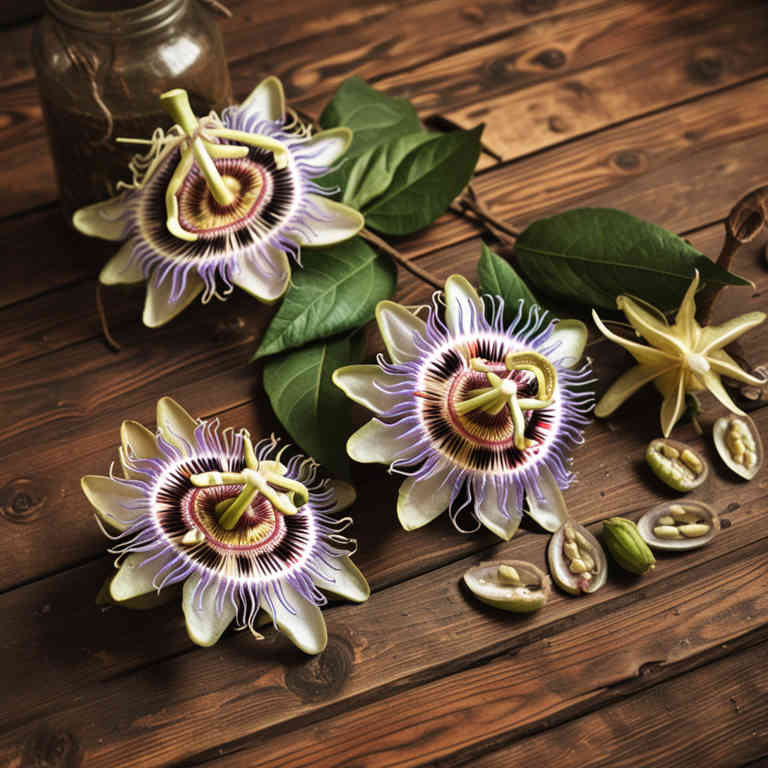Passiflora incarnata decoction for medicinal use

Passiflora incarnata decoction is a herbal preparation made by boiling the leaves, flowers, and stems of the passionflower plant.
It is commonly used in herbalism for its calming properties and is often prescribed to help alleviate anxiety and promote relaxation. The decoction is typically consumed as a tea or taken in liquid form to support nervous system health. It is believed to work by increasing levels of gamma-aminobutyric acid (GABA) in the brain, which has a soothing effect.
This preparation is widely used in traditional and complementary medicine for its mild sedative and mood-enhancing effects.
Uses
Passiflora incarnata decoction has been used to promote relaxation and improve sleep quality for centuries.
Historically, Native American tribes utilized the plant for its calming properties, often preparing it as a tea to ease anxiety and induce tranquility. In traditional herbal medicine, it was also used to treat nervous disorders and as a sedative. Modern applications include its use in complementary medicine for managing stress, insomnia, and mild anxiety, often supported by some clinical studies.
Today, it is commonly found in herbal remedies and supplements, valued for its mild sedative effects and potential to support emotional well-being.
Benefits
Passiflora incarnata decoction has health benefits such as promoting relaxation, reducing anxiety, and improving sleep quality.
It contains compounds that act as natural sedatives, helping to calm the nervous system. This herbal preparation is often used to alleviate symptoms of stress and insomnia due to its mild tranquilizing effects. It may also support digestive health and reduce inflammation in the body.
Passiflora incarnata decoction is a popular remedy in traditional medicine for its soothing and calming properties.
Constituents
Passiflora incarnata decoction active constituents include compounds such as flavonoids, alkaloids, and essential oils.
These components contribute to the decoction's calming and sedative effects. Flavonoids like chrysin and hesperidin are known for their antioxidant properties. Alkaloids such as harmine and harmaline may influence neurotransmitter activity.
Essential oils contribute to the aromatic and soothing qualities of the preparation.
Preparation
To make Passiflora incarnata decoction, start by gathering 1 to 2 tablespoons of dried Passiflora incarnata (commonly known as passionflower) herb.
Rinse the herb thoroughly to remove any impurities. Place the herb in a pot and add about 2 cups of water, then bring the mixture to a gentle simmer over medium heat. Allow the decoction to simmer for 15 to 20 minutes, ensuring it does not boil vigorously.
Strain the liquid through a fine mesh strainer or cheesecloth into a clean container, and let it cool before storing in the refrigerator for up to 5 days or freezing for longer-term use.
Side Effects
Passiflora incarnata decoction may lead to sedative effects, including drowsiness and relaxation of muscles, due to its active compounds such as flavonoids and alkaloids.
It is commonly used for its calming properties to help with anxiety and sleep disorders. However, possible side effects include dizziness, fatigue, and gastrointestinal discomfort in some individuals. Prolonged use may result in dependency or reduced effectiveness over time.
It is important to consult a healthcare provider before using this preparation, especially for those with existing medical conditions or taking other medications.